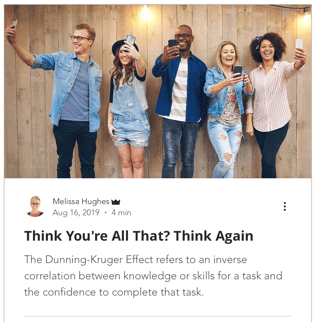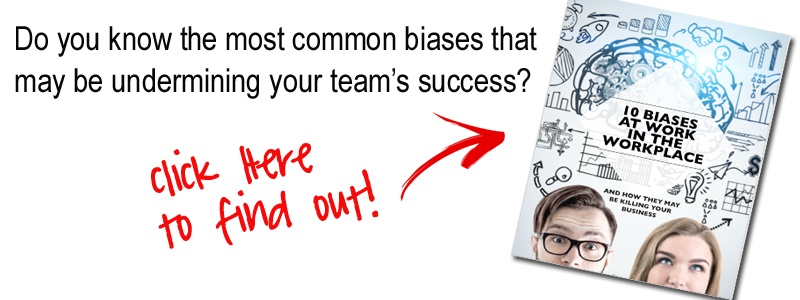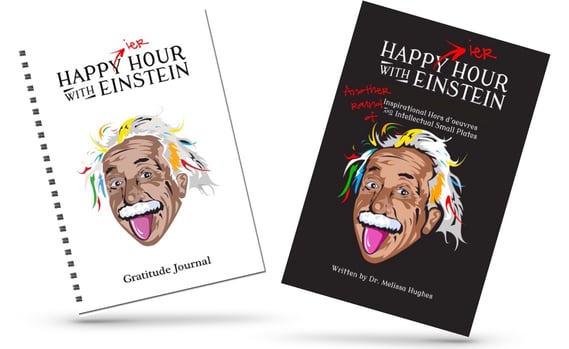When you hear the word bias, what comes to mind? Racial prejudice? Or maybe you think of mainstream media or a particular political persuasion. But I know… you’re not biased, right? Newsflash: Yes, you are. We ALL are. People like to think that they don’t see color, gender or other social categories. But, recent studies indicate that none of us are truly “blind” to social groups. The human brain automatically makes note of people around us and it takes only very minor cues for our minds to form a judgment about them. It may be a person's gender or skin color. Even a person's name can conjure up stereotypical images.
For example, we all have a natural propensity to want to be around people we can relate to – “people like me.” It’s a well-established bias called the affinity bias. If we are honest, we have a really hard time contemplating the alternative. If affinity bias means being biased towards “people who make me comfortable” or “people who are like me,” then tucked away in the back of our minds are “people who are not like me” and “people who make me uncomfortable”-- even if it conflicts with our conscious value system.
Science suggests that we're hardwired to delude ourselves. It's called the bias blind spot. Simply put, a bias blind spot means that you rationally believe you are less biased than other people. As a result, you are less likely to be able to spot your own biases.
The question is not "Are you biased?"
The question is "How are you biased?"
In a 2015 study published in Management Science, researchers from Carnegie Mellon University, the City University London, Boston University and the University of Colorado, Boulder sought to determine how accurately we are able to identify our own biases. They discovered that not only are most of us really bad at it, but also that believing you are less biased than your peers has detrimental consequences on judgments and behaviors, such as accurately judging whether advice is useful.
The most telling finding in the study was that everyone is affected by blind spot bias — only one adult out of 661 said that he/she is more biased than the average person. They also found that people with a high bias blind spot are the least receptive to the advice of peers or experts, and are least likely to learn from de-biasing training that could improve the quality of their decisions.
“People seem to have no idea how biased they are. Whether a good decision-maker or a bad one, everyone thinks that they are less biased than their peers,” said Carey Morewedge, one of the researchers from Boston University. “This susceptibility to the bias blind spot appears to be pervasive, and is unrelated to people’s intelligence, self-esteem, and actual ability to make unbiased judgments and decisions.”
 The greater the bias blind spot people have, the less accurate they are at evaluating their own ability in comparison to others.
The greater the bias blind spot people have, the less accurate they are at evaluating their own ability in comparison to others.- People with a greater bias blind spot are more likely to ignore advice or incorporate constructive criticism from others into their opinions and decisions.
- People with a greater bias blind spot are less likely to learn from training or people who could help them identify their biases.
So, before you try to convince someone how unbiased you are, take a step back and remember that we all have a bias blind spot. The more you acknowledge it, the smaller it gets.
Download my free whitepaper to learn more about the
biases that may be undermining your organizational success.









